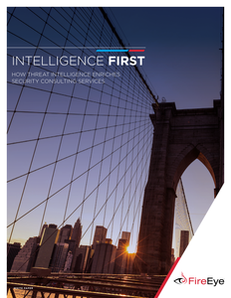Limited room in the budget, a shortage of skilled professionals, and the noise produced by a massive number of security events generated by numerous security products – these are just some of the problems being faced by organizations of all sizes and industries around the world.
To identify and combat threats, analysts must not only become experts at working with a myriad of security products, they also must understand how attackers think, how they operate and what data they are targeting. It is a daunting task to train employees on all this, which is why many organizations have turned to cyber security consulting service providers.
But even cyber security consulting service providers are falling behind. The traditional approach to consulting is based on outdated best practices, generic standards and industry groupings. These can be useful, but could also result in lower quality engagements, thus opening the door to repeated compromises in an environment.
Enter cyber threat intelligence (CTI). In our white paper, Intelligence First: How Threat Intelligence Enriches Security Consulting Services, we discuss how truly effective cyber security consulting requires a foundation of threat intelligence.

